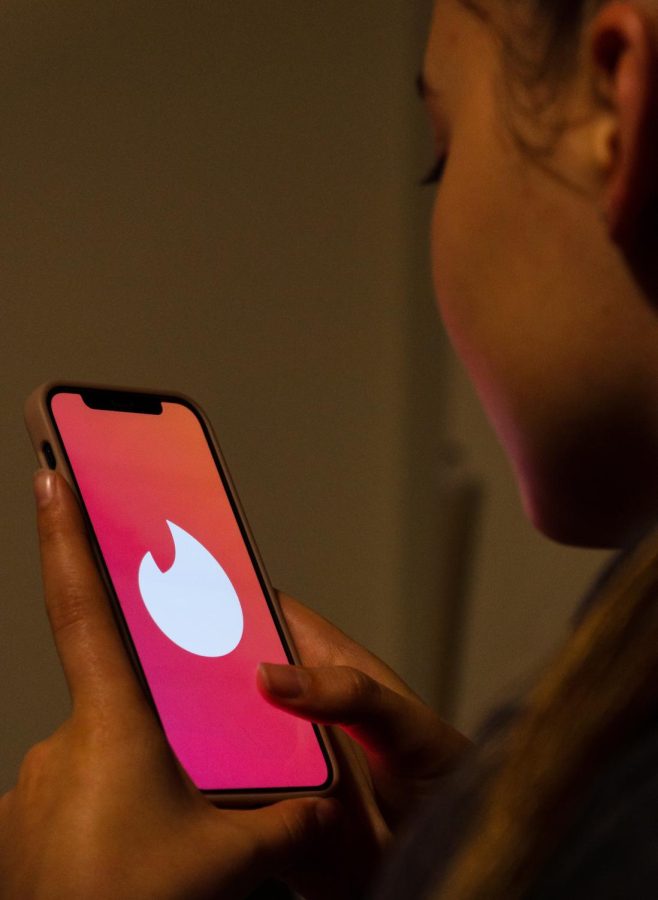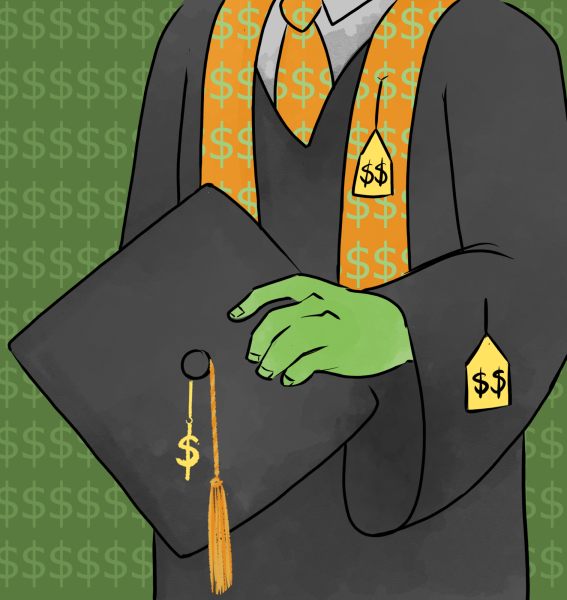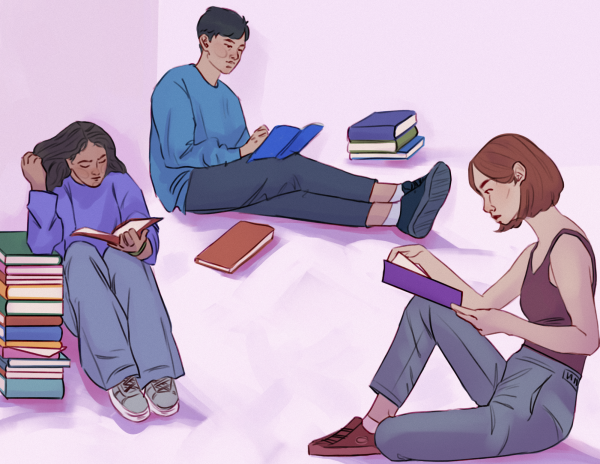F*ck it, real talk: Dating apps (probably) aren’t good for your mental health
First-year biochemistry major Mya Kuzmin opens the Tinder app on April 20 in her dorm room. Many college students use Tinder as a way to pass the time between classes which, if done too often, can lead to a negative effect on their mental health.
May 2, 2022

Editor’s Note: This column does not represent the opinion of The Daily Barometer. This column reflects the personal opinions of the writer.
Dating apps can lead to feelings of self doubt and loneliness, and, for many people, it is probably best to steer clear of such apps due to their addictive nature.
Dating apps such as Tinder, Bumble, Grindr and Hinge are very popular nowadays. According to a 2020 Pew Research Center report, over 30% of adults reported using dating apps.
Dating apps can certainly be helpful to some people, especially during the COVID-19 pandemic when meeting people in person was difficult. However, they also increase feelings of loneliness, worthlessness and self doubt, and social media is designed to be addictive. This has real harmful effects on individuals.
These apps, like social media to an extent, play on a desire that I would argue almost everyone has: To be wanted. Everyone wants to be special and everyone wants to be important to someone. Dating apps have found a way to exploit these basic human needs for profit in much of the same way that social media does. Because at the root, almost all of us are afraid of being alone and we are afraid that we won’t find that special person. These fears are founded because the hard truth is that some people don’t.
“I remember early on, [dating apps] amplified the feeling of being alone,” said Quinn Slatter, a history student at OSU. “Swiping right on hundreds of girls, getting a handful of matches and maybe one date.”
I would argue that whether you get a lot of matches or just a few is not the point. It is factual to say that women get more matches than men. It is also factual that conventionally attractive people get more matches than people who aren’t conventionally attractive. However, I would argue getting too few or too many matches is still an issue.
If you get too few matches, you might feel bad because you don’t feel like you are attractive or desirable. If you get too many matches, then you might feel overwhelmed and it could inflate your ego.
While the concept of a dating app is not necessarily harmful, the execution is the problem. Dating apps today use intermittent reinforcement. Essentially this means that dating apps are designed to give you likes on a regular but not predictable cycle and that everyone will get a match, but you might not know when.
“As an outsider, I view it as unnecessary almost,” said Nathan Yeh, a history major at OSU. “I don’t know if this is a charisma thing, or some people are more socially aware than others, but I never had a problem meeting people or making friends. Taking steps towards a relationship has never seemed that big of a jump. For some people, online dating is a resource, but an inferior resource to meeting people through school or work.”
It is important to note, too, that women and people of other gender identities have reported very different experiences on dating apps than men.
Most dating apps have a limited number of likes, which can be increased for money. When the likes run out, there is a set time until they refill. There is also no rule on dating apps that your profile will be shown to the people you like and vice versa. This means that many of your likes may not serve a purpose.
“Through this, it became an obsession,” Slatter said. “As soon as that happened, it would be constant swiping. First and last thing I did every day. And I would feel dogsh*t about myself all the time. You put in this work to be interesting, to look good conventionally… You put in this work, which I did anyway. I wanted to see a benefit.”
The unfortunate truth is that dating apps are not designed to get you a partner or even to get you laid. They are designed to turn a profit. The system of likes running out and advanced features for people who pay, seeks to profit on loneliness. For this reason, I think it is best if we all swipe left on dating apps.
























































































































Deez • May 22, 2022 at 12:30 pm
Yeah you right